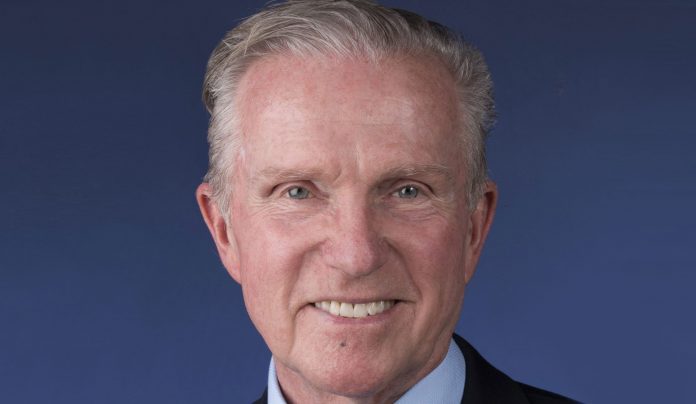September 17, 2020, marked the third annual National Physician Suicide Awareness Day. As I’ve written here the past two years,1,2 this is a day of reflection and pause, a day to remember physicians who have taken their own lives. It is also a day of hope and collaboration, people coming together with ideas and energy to make a difference, to prevent this tragedy from occurring. There were many programs held nationwide throughout the day for people to attend virtually, such as a series of interviews conducted by the American Association of Suicidology.
Early in the COVID-19 pandemic, when New York City was the epicenter, the medical world was rocked and saddened by the sudden death of Dr. Lorna Breen. Dr. Breen, board-certified in emergency and internal medicine, was the head of the emergency department at New York-Presbyterian Allen Hospital in Manhattan. In March, while serving on the frontlines in those early days, she contracted the virus herself. She took only a few days off and returned to work, but she did not fully recover. Her condition worsened and she plunged into a severe, almost catatonic, state. She was hospitalized in Virginia, received psychiatric treatment, seemed to be regaining her health, but ended her life on April 26, 2020. Dr. Breen was a powerhouse, a woman with many talents who was respected and loved by everyone who knew her—her family, her colleagues, students, friends, patients, and their families. Her heartbreaking death has galvanized the nation and beyond.
When I learned of the amazing work that her family has done since her death, I reached out to them and invited her sister Jennifer Feist and brother-in-law Corey Feist to meet with our SUNY Downstate medical community virtually on National Physician Suicide Awareness Day. A few of us formed a working committee and set up an event called “Harnessing Suicide Grief into Action: How the Family of Dr Lorna Breen is Saving Doctors’ Lives.” Despite having a nonstop day meeting with the media all morning and New York-Presbyterian Hospital Columbia and Cornell at noon, they preserved an hour to sit with us, from 3-4 pm, and it was an unforgettable event. We used an interview format, with questions posed by myself and one of our emergency medicine residents, followed by discussion with those attending. Here are some highlights:
- Jennifer Feist described in raw detail the pandemonium in which her sister was working at the hospital, her selfless dedication and commitment to her patients and colleagues, her difficult commute on public transportation in the city, her inability to sleep, her sheer exhaustion, and her haunting statement “I can’t get out of my chair.” Through the loving efforts and goodwill of her friends, they conveyed her safely from New York City to Virginia.
- She emphasized that Dr. Breen had never experienced any previous mental health challenges or psychiatric care in the past.
- The family is certain that Dr. Breen suffered neuropsychiatric complications of COVID-19 and is awaiting postmortem study findings.
- They told us that Dr. Breen was terrified of getting psychiatric care, fearing ostracism by her colleagues and either loss of her job or her medical license. After her death, they learned that some state medical boards do indeed require physicians to disclose current or past mental health care, as do hospital credentialing committees. They learned that “seeking mental health care is considered a sign of weakness among many medical professionals.”3-6
The Feists have created the Dr. Lorna Breen Heroes’ Foundation and Corey Feist described some of the phenomenal work that is underway. It has three pillars: outreach, advocacy, and education. They are speaking at medical schools and before medical groups. He told us about the bipartisan bill introduced in the US Senate in July, “The Dr. Lorna Breen Health Care Provider Protection Act.” It would create a national campaign to encourage health care professionals to seek support and treatment. It would also initiate a federal study into the mental health of health care professionals and provide grants for mental health services to support those providing care to COVID-19 patients. I urge all readers to visit the Foundation website to learn more about the efforts of the Feists and lend support.
When our session was winding up, I reminded Jennifer Feist of something she had said to Savannah Guthrie when interviewed by her on NBC shortly after Dr. Breen died. She described her sister lovingly as “being on fire.” I told Jennifer and Corey Feist that they’re “on fire too” and thanked them for their incredible efforts to continue Dr. Breen’s work.
Former US Surgeon General Dr. David Satcher famously said “Suicide prevention is everyone’s business.” We in the mental health field owe a huge debt of gratitude to Jennifer and Corey Feist, who have become our allies in this fight.
References
- Myers MF. Reflections on National Physician Suicide Awareness Day. Psychiatry and Behavioral Health Learning Network. October 4, 2018. Accessed October 5, 2020.
- Myers MF. National Physician Suicide Awareness Day: we refuse to forget. Psychiatry and Behavioral Health Learning Network. October 16, 2019. Accessed October 5, 2020.
- Knoll C, Watkins A, Rothfeld M. ‘I couldn’t do anything’: The virus and an ER doctor’s suicide. The New York Times. July 11, 2020. Accessed October 5, 2020.
- Chang BP, Cato KD, Cassai M, Breen L. Clinician burnout and its association with team based care in the emergency department. The American Journal of Emergency Medicine. 2019;37(2019):2111-2117.
- Feist JB, Feist JC, Cipriano P. Stigma compounds the consequences of clinician burnout during COVID-19: a call to action to break the culture of silence. Commentary. National Academy of Medicine. Published August 6, 2020. Accessed October 5, 2020.
- Feist J, Feist C. Our family’s tragedy: Dr. Lorna Breen is the canary in the coal mine. U.S. News & World Report. July 28, 2020. Accessed October 5, 2020.
Dr. Myers is Professor of Clinical Psychiatry and immediate past Vice-Chair of Education and Director of Training in the Department of Psychiatry & Behavioral Sciences at SUNY-Downstate Medical Center in Brooklyn, NY. He is the author of 8 books, the most recent of which are “Why Physicians Die by Suicide: Lessons Learned from Their Families and Others Who Cared” and “The Physician as Patient: A Clinical Handbook for Mental Health Professionals” (with Glen Gabbard, MD). He is a specialist in physician health and has written extensively on that subject. Currently, Dr. Myers serves on the Advisory Board to the Committee for Physician Health of the Medical Society of the State of New York. He is a recent past president (and emeritus board member) of the New York City Chapter of the American Foundation for Suicide Prevention.
The views expressed on this blog are solely those of the blog post author and do not necessarily reflect the views of the Psychiatry & Behavioral Health Learning Network or other Network authors. Blog entries are not medical advice.
This blog was first published on 05 October 2020 on Psych Congress Network









